Find the square roots.169
A. 15, -15
B. 13, -13
C. 26, -26
D. 14, -14
Answer: B
You might also like to view...
Solve.Sand is poured carefully into a pile that forms a right circular cone as shown. The total surface area of the cone with slant height s and base radius r is given by the polynomial ?r2 + ?rs. Find an equivalent expression by factoring out a common factor.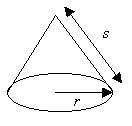
A. ?r(?r + s) B. ?rs(r + 1) C. ?r(r + s) D. r(?r2 + ?s)
Find all complex roots. Write the answer in polar form, with 0 ? ? ? 360°.Fifth roots of 1
A. cos 0° + i sin 0°, cos 36° + i sin 36°, cos 108° + i sin 108°, cos 252° + i sin 252°, cos 324° + i sin 324° B. cos 0° + i sin 0°, cos 72° + i sin 72°, cos 144° + i sin 144°, cos 216° + i sin 216°, cos 288° + i sin 288° C. cos 180° + i sin 180°, cos 72° + i sin 72°, cos 144° + i sin 144°, cos 216° + i sin 216°, cos 288° + i sin 288° D. cos 180° + i sin 180°, cos 36° + i sin 36°, cos 108° + i sin 108°, cos 252° + i sin 252°, cos 324° + i sin 324°
Graph the function. Specify the intervals over which the function is increasing and the intervals where it is decreasing.y = - 
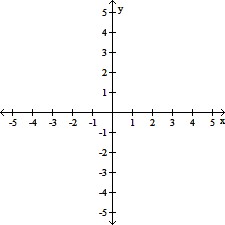
A. Decreasing -? < x < 0
Increasing 0 < x < ?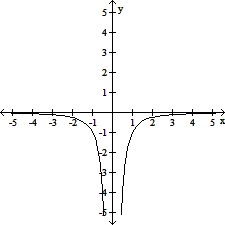
B. Decreasing -? < x < 0 and 0 < x < ?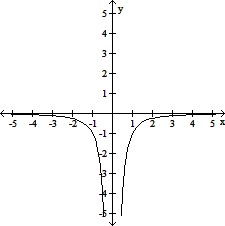
C. Increasing -? < x < 0
Decreasing 0 < x < ?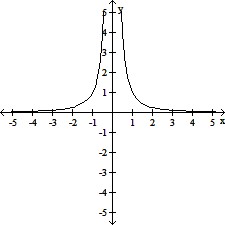
D. Increasing -? < x < 0 and 0 < x < ?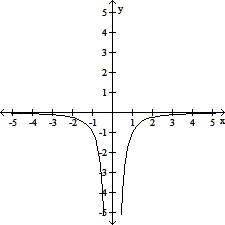
Determine algebraically whether the graph is symmetric with respect to the x-axis, the y-axis, and the origin.y = 3x2 - 4
A. Origin only B. y-axis only C. x-axis only D. x-axis, y-axis, origin